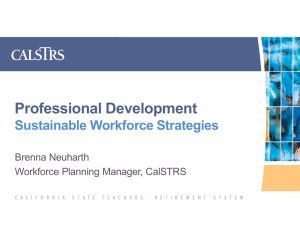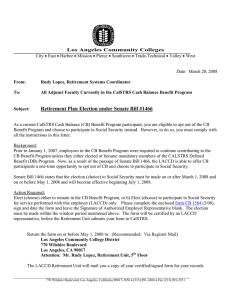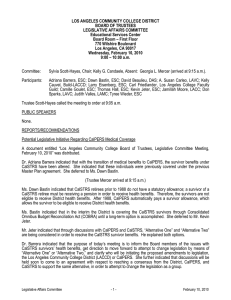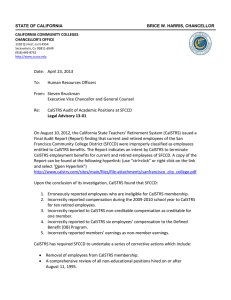Los Angeles Community College District: Legislative Committee Summary:
advertisement
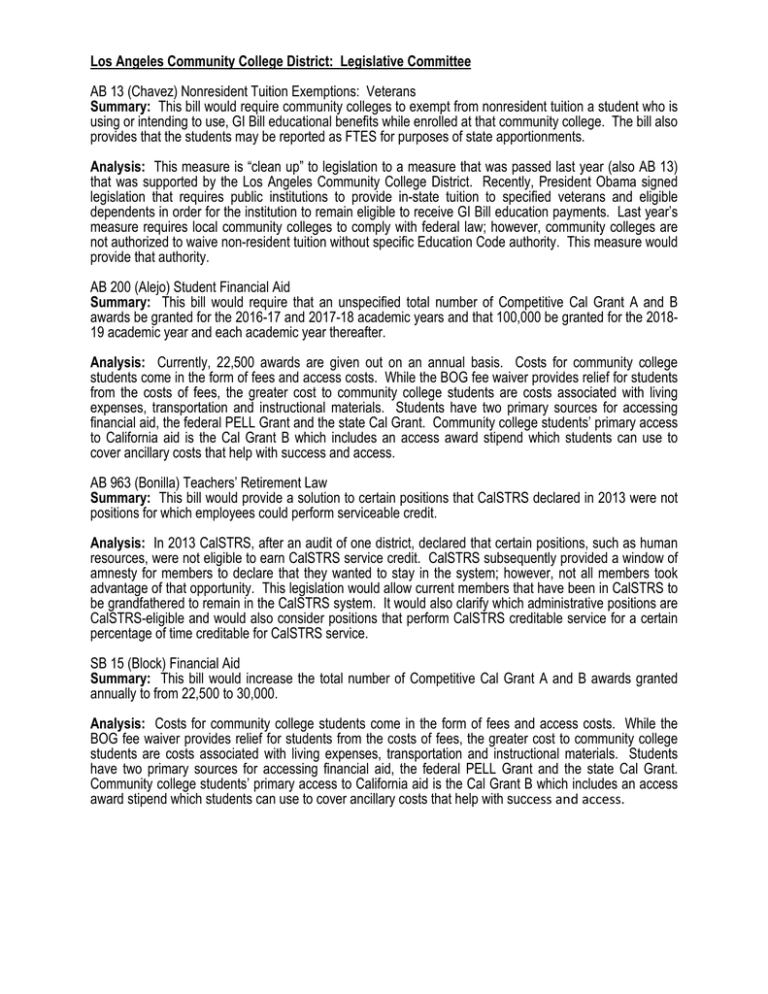
Los Angeles Community College District: Legislative Committee AB 13 (Chavez) Nonresident Tuition Exemptions: Veterans Summary: This bill would require community colleges to exempt from nonresident tuition a student who is using or intending to use, GI Bill educational benefits while enrolled at that community college. The bill also provides that the students may be reported as FTES for purposes of state apportionments. Analysis: This measure is “clean up” to legislation to a measure that was passed last year (also AB 13) that was supported by the Los Angeles Community College District. Recently, President Obama signed legislation that requires public institutions to provide in-state tuition to specified veterans and eligible dependents in order for the institution to remain eligible to receive GI Bill education payments. Last year’s measure requires local community colleges to comply with federal law; however, community colleges are not authorized to waive non-resident tuition without specific Education Code authority. This measure would provide that authority. AB 200 (Alejo) Student Financial Aid Summary: This bill would require that an unspecified total number of Competitive Cal Grant A and B awards be granted for the 2016-17 and 2017-18 academic years and that 100,000 be granted for the 201819 academic year and each academic year thereafter. Analysis: Currently, 22,500 awards are given out on an annual basis. Costs for community college students come in the form of fees and access costs. While the BOG fee waiver provides relief for students from the costs of fees, the greater cost to community college students are costs associated with living expenses, transportation and instructional materials. Students have two primary sources for accessing financial aid, the federal PELL Grant and the state Cal Grant. Community college students’ primary access to California aid is the Cal Grant B which includes an access award stipend which students can use to cover ancillary costs that help with success and access. AB 963 (Bonilla) Teachers’ Retirement Law Summary: This bill would provide a solution to certain positions that CalSTRS declared in 2013 were not positions for which employees could perform serviceable credit. Analysis: In 2013 CalSTRS, after an audit of one district, declared that certain positions, such as human resources, were not eligible to earn CalSTRS service credit. CalSTRS subsequently provided a window of amnesty for members to declare that they wanted to stay in the system; however, not all members took advantage of that opportunity. This legislation would allow current members that have been in CalSTRS to be grandfathered to remain in the CalSTRS system. It would also clarify which administrative positions are CalSTRS-eligible and would also consider positions that perform CalSTRS creditable service for a certain percentage of time creditable for CalSTRS service. SB 15 (Block) Financial Aid Summary: This bill would increase the total number of Competitive Cal Grant A and B awards granted annually to from 22,500 to 30,000. Analysis: Costs for community college students come in the form of fees and access costs. While the BOG fee waiver provides relief for students from the costs of fees, the greater cost to community college students are costs associated with living expenses, transportation and instructional materials. Students have two primary sources for accessing financial aid, the federal PELL Grant and the state Cal Grant. Community college students’ primary access to California aid is the Cal Grant B which includes an access award stipend which students can use to cover ancillary costs that help with success and access.
